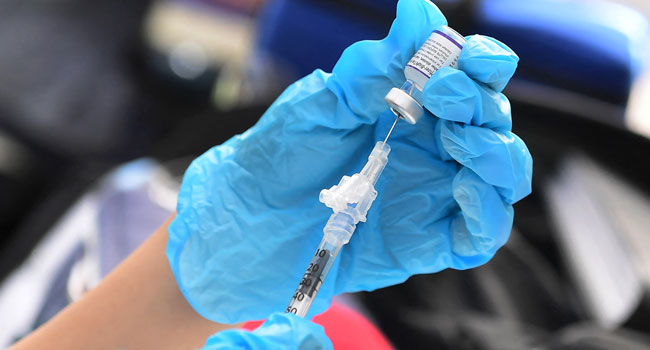Nigeria Took the Lead in Distributing New Meningitis Vaccine- World Health Organisation
The Men5CV meningitis vaccination, which was recommended by the World Health Organisation (WHO), has been administered to Nigeria, making it the first country in the world to do so.
For nations like Nigeria, where numerous serogroups are common, this is of utmost importance, according to the WHO. Similar to the MenAfriVac® meningitis A conjugate vaccine, which eradicated meningococcal A infections in Nigeria, the new vaccine employs the same technology.
The Vaccine Alliance (Gavi) provides funding for the world’s meningitis vaccine supply and helps lower-income nations implement regular vaccination programmes.
The World Health Organisation has announced a groundbreaking new vaccination that, when administered all at once, provides formidable protection against all five of the most common meningococcal bacterial strains: A, C, W, Y, and X. Meningitis and blood poisoning can be caused by any of the five strains.
The present vaccination is only effective against the A strain in much of Africa, while this one offers broader protection, as pointed above.
The new vaccination may help in the battle against meningitis and drastically cut down on cases, according to studies.
The new vaccine has the ability to alter the course of meningitis, halting further epidemics and saving countless lives, according to Dr. Tedros Adhanom Ghebreyesus, Director-General of the World Health Organisation.
“The elimination of meningitis by 2030 is within reach, thanks to Nigeria’s deployment.”
According to Prof. Muhammad Ali Pate of the Nigerian Ministry of Health and Social Welfare, “this vaccine provides health workers with a new tool to both stop this outbreak and also put the country on a path to elimination.” The northern states of Jigawa, Bauchi, and Yobe were severely affected by the deadly meningitis outbreak.
We have invested much in training medical professionals and the healthcare system to implement this new vaccine. Community leaders, such as the Emir of Gumel in Jigawa area, who spearheaded the vaccination campaign in his area, and the people of Gumel continued to show tremendous support for us during the fasting period. We will continuously evaluate the progress and, in the future, we intend to increase vaccination rates to speed up the process.
A collaboration between PATH and the Serum Institute of India laid the groundwork for this novel multivalent conjugate vaccine, which took thirteen years to develop.
An essential component in its creation was the funding provided by the Foreign, Commonwealth, and creation Office of the UK government.
Situated in the African Meningitis Belt, Nigeria is one of 26 African countries with a hyperendemic meningitis population. The number of meningitis cases recorded annually across Africa increased by 50% last year.
Seven out of 36 states in Nigeria (Adamawa, Bauchi, Gombe, Jigawa, Katsina, Yobe, and Zamfara) had 1742 suspected cases of meningitis and 153 fatalities between October 1, 2023, and March 11, 2024, due to an outbreak of Neisseria meningitidis (meningococcus) serogroup C.
A vaccine drive targeting over one million individuals aged 1–29 was launched on March 25–28, 2024, in an effort to halt the fatal epidemic.
In meningitis, an infection of the protective membranes (meninges) around the brain and spinal cord causes inflammation, a potentially fatal condition.
Pathogens such as viruses, bacteria, fungi, and parasites can all cause meningitis. Stiff necks, fevers, and headaches are common symptoms.
Those who get bacterial meningitis within a day are at risk of developing septicaemia, a kind of blood poisoning, and severe disability or death.




